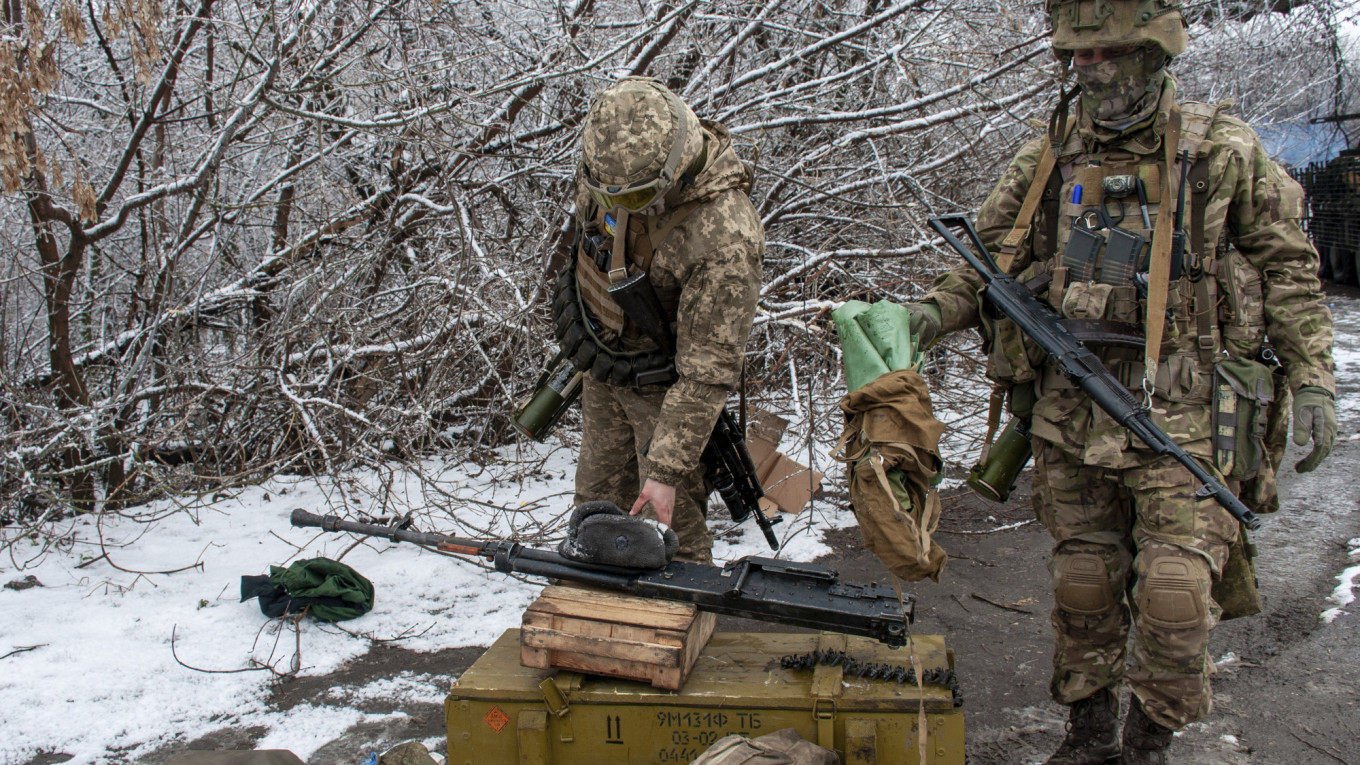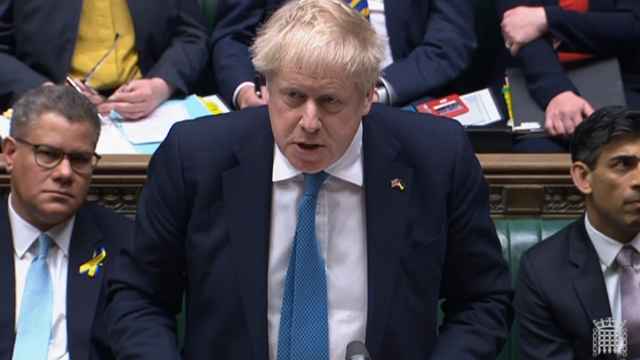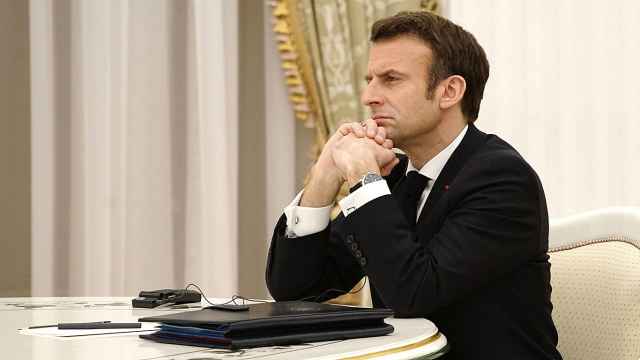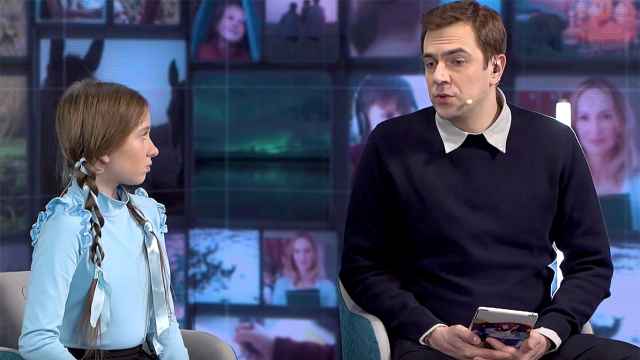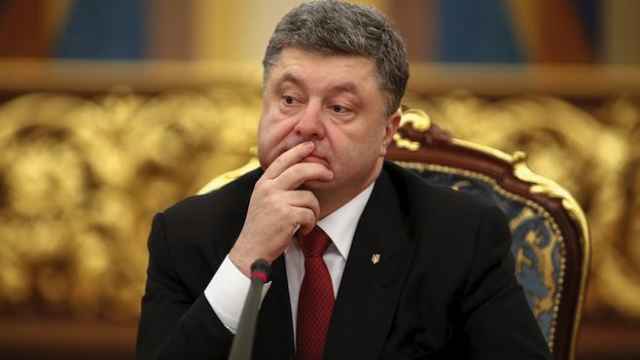Street fighting raged in Ukraine's second-biggest city on Sunday after Russian forces pierced through Ukrainian lines, as both sides said they were ready for talks to halt a conflict that has forced an estimated 260,000 people to flee their homes.
Machine gun fire and explosions could be heard in Kharkiv in northeast Ukraine and an AFP journalist saw the wreckage of a Russian armoured vehicle smouldering and several others abandoned.
On the fourth day of an invasion by Russia that has sent shockwaves around the world, Ukrainian President Volodymyr Zelenskiy turned down Moscow's offer of a meeting in Belarus, which has allowed Russian troops passage to attack Ukraine.
Zelenskiy said Ukraine had proposed Warsaw, Bratislava, Budapest, Istanbul and Baku as possible alternative locations for any talks.
"Any other city in a country from whose territory missiles do not fly would suit us," Zelenskiy said.
"The past night in Ukraine was brutal," he said. "They fight against everyone. They fight against all living things — against kindergartens, against residential buildings and even against ambulances."
Ukraine has reported 198 civilian deaths, including three children, since the invasion began.
President Vladimir Putin has defied crippling Western sanctions on Russia's economy and international pariah status for his country to press ahead with the air, ground and sea assault.
Apart from the attack on Kharkiv, located near the Russian border, Moscow also claimed it was "entirely" besieging the southern Ukrainian city of Kherson and the city of Berdyansk in the southeast.
Ukrainian officials also said that a gas pipeline in eastern Kharkiv and an oil depot near the capital Kyiv were targeted overnight.
The claims could not be independently verified.
Many Kyiv residents spent another night in shelters, but the morning was relatively calm and a strict blanket curfew is in place until Monday.
Russia on Saturday ordered its forces to advance further into Ukraine "from all directions" but soldiers have encountered fierce resistance from Ukrainian troops, the intensity of which has likely surprised Moscow, according to Western sources.
Ukraine's army said it held the line against an assault on Kyiv, but was fighting Russian "sabotage groups" that had infiltrated the city.
"We will fight until we have liberated our country," a defiant Zelenskiy said in a video message on Saturday.
He also said Ukraine had "derailed" Moscow's plan to overthrow him and urged Russians to pressure Putin into stopping the conflict.
On Sunday, Ukraine's general staff said the 44-year-old leader was urging any foreigners to come to Ukraine "and fight side by side with the Ukrainians against Russian war criminals."
"There is no greater contribution which you can make for the sake of peace," the general staff said in a Facebook post, adding that the foreign fighters would form part of an "International Legion for the Territorial Defence of Ukraine."
'I was trembling'
Ignoring warnings from the West, Putin unleashed a full-scale invasion that the UN Human Rights Office (OHCHR) says has left at least 240 civilians wounded, including 64 killed.
The UN refugee agency (UNHCR) says more than 100,000 people have fled to neighbouring countries, while over 160,000 are estimated to be displaced within Ukraine.
In neighbouring Romania, Olga, 36, was among hundreds to have crossed the Danube river with her three young children to safety.
"My husband came with us as far as the border, before returning to Kyiv to fight," she said.
Thousands also made their way to Poland by train, on foot and in cars.
"Attacks were everywhere," said Diana, 37, who fled the Ukrainian capital.
"My mother is still in Kyiv."
Residents of the capital have sought sanctuary in subway stations and cellars and Zelenskiy announced a baby girl had been born on the metro.
Yulia Snitko, a pregnant 32-year-old, said she had sheltered in the basement of her Kyiv apartment block, fearing premature labour.
"It was more than one hour of huge explosions. I was trembling," she said.
Thousands around the world demonstrated their solidarity with Ukraine on Saturday.
Zelenskiy said he asked UN Secretary-General Antonio Guterres to strip Russia of its vote at the UN Security Council as punishment for the invasion.
The UN Security Council will convene later on Sunday to vote on a resolution calling for a special session of the General Assembly over the Russian invasion of Ukraine, diplomats have said.
The Ukrainian president has also thanked NATO members for sending weapons and equipment, while Washington announced $350 million of new military assistance.
Berlin said it would send Kyiv 1,000 anti-tank weapons and 500 Stinger missiles, in a major U-turn from its longstanding policy of not exporting weapons to war zones.
Paris said it would deliver more arms to Ukraine.
NATO also said it will deploy its 40,000-strong rapid response force to Eastern Europe for the first time, but stressed it will not send forces to Ukraine.
Crippling bank sanctions
Responding to the invasion, the West said it would remove some Russian banks from the SWIFT bank messaging system, and froze central bank assets — essentially crippling some of Russia's global trade.
Speaking in Washington Saturday, a senior US official said the measures would turn Russia into a "pariah," adding that a task force will "hunt down" Russian oligarchs' "yachts, jets, fancy cars and luxury homes."
Germany had previously resisted the SWIFT removals over concerns Russia could cut off key gas supplies.
The Kremlin has so far brushed off sanctions, including those targeting Putin personally, as a sign of Western impotence.
Putin has said Russia's actions are justified because it is defending Moscow-backed separatists in eastern Ukraine.
The rebels have been fighting Ukrainian government forces for eight years in a conflict that has killed more than 14,000 people.
Putin called the current conflict a "special military operation" and Russia's communications regulator on Saturday told independent media to remove reports describing it as an "assault, invasion, or declaration of war."
A Message from The Moscow Times:
Dear readers,
We are facing unprecedented challenges. Russia's Prosecutor General's Office has designated The Moscow Times as an "undesirable" organization, criminalizing our work and putting our staff at risk of prosecution. This follows our earlier unjust labeling as a "foreign agent."
These actions are direct attempts to silence independent journalism in Russia. The authorities claim our work "discredits the decisions of the Russian leadership." We see things differently: we strive to provide accurate, unbiased reporting on Russia.
We, the journalists of The Moscow Times, refuse to be silenced. But to continue our work, we need your help.
Your support, no matter how small, makes a world of difference. If you can, please support us monthly starting from just $2. It's quick to set up, and every contribution makes a significant impact.
By supporting The Moscow Times, you're defending open, independent journalism in the face of repression. Thank you for standing with us.
Remind me later.


